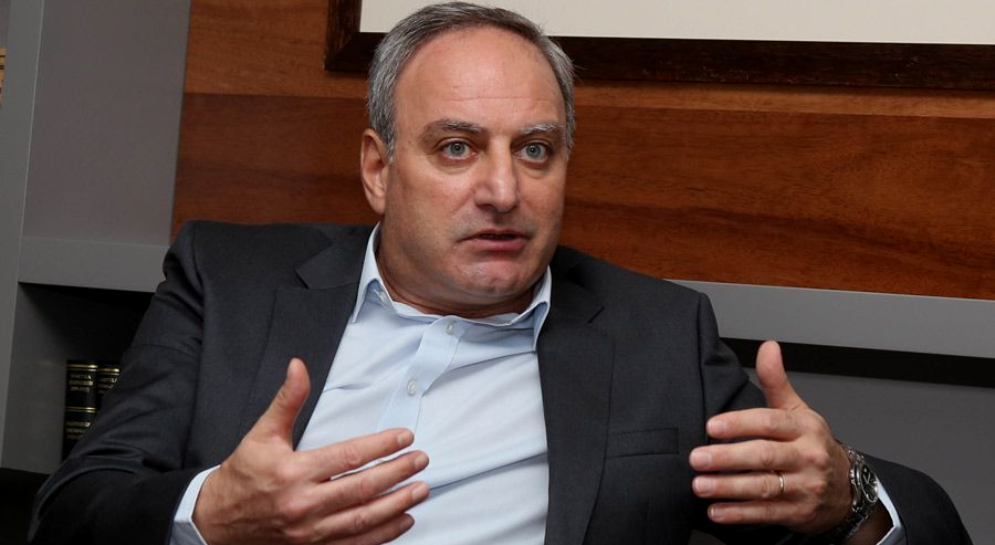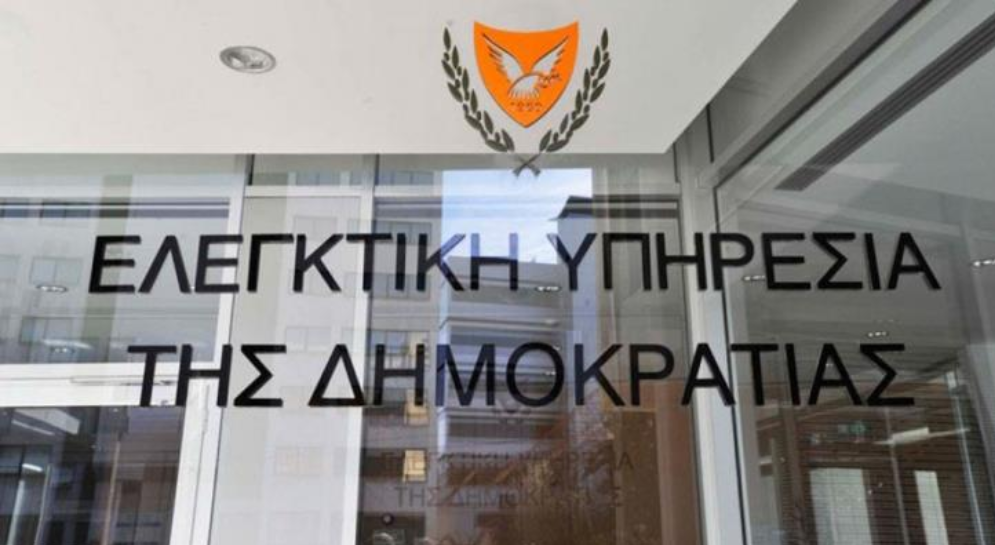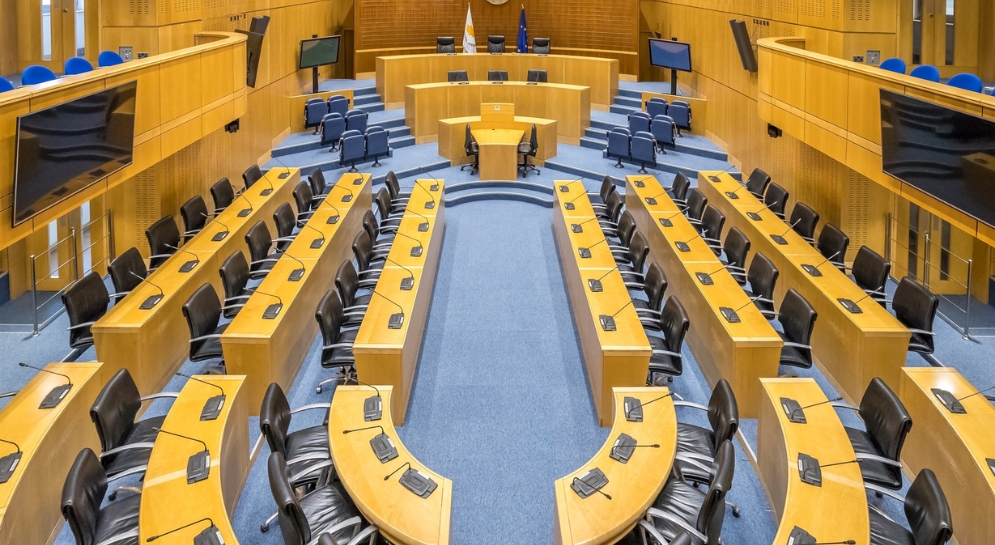
Interview with the General Secretary of AKEL S. Stefanou
Sunday 17 March 2024 ‘Phileleftheros’ newspaper
QUESTION: Let’s start with the upcoming elections. Where does AKEL raise the bar to and why would someone choose to vote for the AKEL electoral list, what are the facts available to them?
SS: Good-humouredly, I will not say that AKEL will set the bar high, because we will probably be misunderstood by Mr Christodoulides. But I will say that we want AKEL’s presence in local self-government to be strong, because we are convinced that the Party has the experience, the vision, political positions and proposals to help local government to progress, indeed on the process of implementing the local authority Reform. AKEL’s strong presence is a decisive factor in enabling local government to fulfil its role, which is to make local communities and society better.
As far as the European elections are concerned, it is generally accepted that we have an electoral list with capable people, with an equal number of men and women, a bicommunal ballot, ready and able to continue our assertive and creative presence.
Our objective is given. We want to maintain two MEP’s in the European Parliament, which means that we must move record electoral percentages of more than 25-25.5%.For that reason, we are working to increase our percentages compared to the percentages we recorded in the 2021 parliamentary elections.
QUESTION: Why is 25% considered satisfactory for AKEL, a party which for many years was receiving more than 30% of the vote?
NI: What I said is that we need to move at least towards gaining 25-25.5% of the vote to be able to elect two MEP’s. I didn’t say that 25% is satisfactory. The goal we have set as the new leadership of the Party is to get back to the position where AKEL has historically been. This, of course, cannot be achieved overnight. Bearing in mind that AKEL in 2021 had registered a historically low percentage, we are working to get back to where we have always been. I believe, we are on the right track.
QUESTION: One could say that the political conditions favours you. So why hasn’t that momentum been expressed?
NI: Obviously you mean that since the government is down [in the polls], therefore we as an opposition party should be up. But in political dynamics things don’t work out in this simple and automatic way. When the government records loses, it doesn’t automatically mean that the opposition inevitably increases its own strength.
However, I must say that the next elections will show that AKEL does have momentum and is on the rise. In addition, I would like to note that the current situation in the EU is being capitalised on by the far right and populists, which is a big problem for democracy.
QUESTION: Why is that in your opinion?
NI: The main reason is that the policies that are dominant in the EU, imposed by the Right, have caused major economic, social problems and growing inequalities that have burdened large sections of European societies. These sections of the population feel that they have nothing to look forward to, they have no future and prospects.
As a result, part of this society stays at home, doesn’t vote, doesn’t express its disagreement with what is happening and doesn’t support the efforts to change things. But this is precisely how the situation that afflicts them is perpetuated and consolidated.
Another part of society votes either the populists or the far right who portray themselves as Messiahs. That’s what we are trying to change.
On the one hand, through our assertive stance on issues that harm society and the economy, we are trying to prevent and change them. On the other hand, with our creative stance, where we disagree, we submit our own proposals trying to get them adopted, so that they become policy and are implemented in practice.
QUESTION: According to opinion polls in Cyprus too, the far-right party appears to be recording a big increase. How concerned are you and why is the argument about the dangers of the growth of the far right no longer convincing people?
NI: We have always expressed our concern, not just today. From the very first moment we have been sounding the alarm about the far-right. Let me remind you that we have raised the issue, both inside and outside Parliament. We addressed the Attorney General’s Office. We addressed the previous government. We addressed many institutions. The response of all of them to our concerns was – “but why are you worried? Why are you raising questions? Why don’t you accept to engage in a discussion with the far right?”
We made it very clear why we should all be worried and why no tolerance must be shown. This tolerance, which was and is being shown by the majority of the political parties and institutions, is leading to the ‘normalisation’ of the far-right and the ELAM party in particular. The ultra-right is trying to ‘normalise’ itself through its behaviour by concealing its real intentions, positions and true origins.
If you ask ELAM leader Christou today about the ‘Golden Dawn’ party in Greece, he will tell you that “but we have nothing to do with Golden Dawn”, despite the fact that he tried to register his party in our country as the Golden Dawn branch in Cyprus. That request was rejected. If you tell him about his own links with Golden Dawn and about the photos of him next to Golden Dawn leader Michaloliakos, he won’t give you an answer. That is what we have always been saying. Some people even told us that we were “scare-mongering” or that we were exaggerating.
QUESTION: Why is the far right growing?
NI: The ultra-right is fed by two main sources. It is fed by the numerous socio-economic problems Europe is confronted with and by the policies being implemented by the Right which are infuriating societies and peoples. This disillusionment creates an explosive mixture, which is accordingly diffused in various directions. The far right is fishing for votes, firstly, from the phobic syndromes of societies in relation to immigration and refugees and, secondly, with its populism from those layers of society that are under great pressure from the anti-social neoliberal policies.
Furthermore, the extreme-right is exploiting people’s negative sentiments and the ongoing erroneous economic conditions, whilst also gaining a social base as a result of the tolerance and every now and then support shown towards it shown by the establishment.
We shouldn’t forget that Right-wing parties are cooperating in government with far-right parties. I must say, however, that the ruling circles in the EU are unfortunately ‘normalising’ the far right through their policies and behaviour. The same is happening here in Cyprus too.
‘With AKEL strong, Cyprus’ presence in Europe is also strong’
QUESTION: Why should someone vote for the AKEL electoral list?
NI: Because AKEL, through its twenty years of presence in the European Parliament, has proven that a vote for our Party is worth much more than Cyprus’ small presence in the European Parliament.
AKEL defends Cyprus, asserts for our country and its people, but also asserts for Europe. And I say this at a time when what AKEL and the Left are saying about the European Union and its policies is now in front of us. Life itself is proving what we have been saying all along.
I hear leaders of the Right in Cyprus and abroad coming out and accusing the European Union of hypocrisy. Of course, at a time when we should be pointing out and focusing on the essence and when we should be exposing the hypocrisy, they are nowhere to be seen.
Besides, the fact is that it is the Right that dominates the European Union, so they are very much responsible for the numerous erroneous practices and policies that are being implemented in the EU. It makes me angry to hear, for example, the President of the Right-wing Democratic Rally talking about the hypocrisy of the European Union, whilst at the same time it is the Right that rules the EU which is responsible for this very hypocrisy. So when we talk about hypocrisy, we should know that we are first and foremost talking about the hypocrisy of the Right itself.
So, in answer to your question why should someone vote for AKEL in the European elections, the answer is because it is the force of assertion that has a specific concept of what Europe should be like and where it should be heading towards. Namely that there should be a Europe of the peoples, a factor of security, peace and the defence of human rights, a promoter of international law.
For all these reasons, therefore, people should trust us and vote for AKEL. With AKEL strong, Cyprus’ presence in Europe is strong.
QUESTION: The issue of your relations with the Party’s MEP Niyazi Kızılyürek is again being discussed in some circles. It is even being suggested that as a leadership, as a party, whether you would prefer someone else to be elected from your ticket. How do you comment on that?
NI: Some people are trying to cause trouble but their efforts will be in vain. There is no problem. I understand why some people are trying to discover problems because AKEL is very calmly heading towards the elections and isn’t facing internal problems as other parties are currently facing.
QUESTION: The presence of Anna Theologou on your electoral list is still a subject of discussion. She is a politician about whom it is said that her positions are not in line with AKEL’s. I would like your view on how you respond to this, why she was chosen.
NI: It is not true that Anna Theologou does not embrace and share AKEL’s positions, including on the Cyprus problem. On the contrary, she fully embraces and supports our positions. It is just that those circles who are trying to create the image that Anna Theologou does not support AKEL’s positions would do well to listen to the address she gave last Saturday at a bicommunal event with a big Turkish Cypriot presence. Her position was clear in favour of the solution of Bizonal, Bicommunal Federation with political equality so that Greek Cypriots and Turkish Cypriots can co-manage their own future within the framework of a common bicommunal state.
Beyond that, I have to say that Anna Theologou and I have had a very close cooperation for some years now, both in Parliament and, after she wasn’t elected, outside Parliament. Through our cooperation, Anna Theologou appreciated AKEL’s positions and interventions and I would say that we developed this cooperation naturally, which began much earlier and culminated in the Presidential Elections with her expressing her support towards the candidacy of Andreas Mavroyiannis. Our cooperation in the European elections and at the level of the Social Alliance is the natural development of this cooperation.
QUESTION: According to the opinion polls, public opinion seems to be demanding a more dynamic opposition from you as a party. How do you comment on this?
Ni: First of all, I must say that we always take polls seriously into account as a tool to study people’s opinions. When opinion polls pose the question about the degree of satisfaction with the opposition’s role, the findings are not so flattering about its policies. This is still the case now, although if you compare the figures for AKEL’s opposition with previous surveys, they are currently much higher. In any case, we see this indicator as a fact that pushes us to become even better.
On the other hand, we have to consider, what do people mean by a better opposition? Some people say, and you find this out when you talk to people, that we should be more dynamic. Other people say, you know, you have to be more creative and specific in your proposals.
So all of that is a mixture that we have to turn into political engagement. We are continuing along this line that we have charted, trying as much as possible to be more effective, that is, to make this opposition that we are exercising yield results, and at the same time that this opposition should be more understandable to society.
‘A perspective on the Cyprus problem exists despite the difficulties’
QUESTION: AKEL recently had a meeting with the UN Secretary General’s envoy on Cyprus Ms. María Angela Holguín Cuéllar. What did you take away from this meeting?
NI: It was a useful and constructive meeting because it gave us the opportunity to outline our positions on the Cyprus problem, especially in the very difficult context in which we find ourselves against the background of the prolonged and ongoing impasse on the Cyprus problem, the Turkish side’s shift from the solution of bizonal, bicommunal federation to demanding a two state solution, as well as Turkey’s provocative actions at various levels as we see them on the ground.
The meeting with Ms Holguín gave us the opportunity to explain AKEL’s longstanding positions on the Cyprus problem and its solution. Positions that are steadfast and timeless. We also explained the comprehensive proposal we submitted to the National Council on how the current situation should be handled.
Our proposal includes four main pillars for the solution of the Cyprus problem. The insistence on the solution of bizonal, bicommunal federation with political equality; that negotiations must resume from the point where they were interrupted in 2017 at Crans Montana, preserving the convergences that have been recorded so far and negotiating on the Guterres Framework; the need to formulate a positive agenda that creates momentum to bring Turkey back to the negotiating table.
Our proposal also highlights the need for the Republic of Cyprus to constantly address the Turkish Cypriot community and to put forward measures to make life easier for Turkish Cypriots. By doing so, we will gain their trust and together we should struggle for a solution that will enable them to function as equal European citizens within the framework of a bicommunal state, a member of the European Union.
QUESTION: So as a conclusion, or if you like as an assessment of the situation, do you think there can be a perspective arising from this new effort underway?
NI: We are the kind of people who say that it’s not futile and that not it’s all over. There is a perspective on the Cyprus problem despite all the difficulties and despite the fact that the passage of time has put a great strain on the conditions for reaching a solution.
This year marks half a century since 1974. We need, at this difficult juncture, to take specific, targeted and well thought-out initiatives, as the Greek Cypriot side and as the Republic of Cyprus in general, in order to exhaust all the room for manoeuvre we have at our disposal to create momentum for a solution.
If Turkey responds, it means that we are going to continue negotiations. If not, at least it should be made clear to the international community that the reason for the non-solution of the Cyprus problem lies in Ankara and not somewhere else.

Secretary




